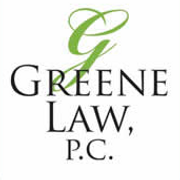
Filing for bankruptcy may be your best option to manage debt. Whether you file for Chapter 7 or Chapter 13 depends on multiple factors, including your income, your unsecured debt such as credit cards and medical bills, and your secured debt such as a home mortgage or a vehicle with a title loan. The information below may help you decide which is best for your situation.
What You Should Know Before Filing for Bankruptcy
What’s Chapter 7?
A Chapter 7 bankruptcy, known as liquidation bankruptcy, allows you to discharge unsecured and secured debt without making payments to creditors. Generally, the process takes three to four months. You must pass a debt-to-income ratio means test to qualify, but if your income is too high, you can file under Chapter 13.
What’s Chapter 13?
Often called a wage-earner plan, a Chapter 13 bankruptcy lets you work out repayments with creditors and keep your secured property. You submit a three-to-five-year payment plan to the court for approval. Once you complete an approved plan, the court discharges any remaining debt.
How Filing Affects Your Credit Rating
As attorneys know, credit scores drop whether you’re filing for bankruptcy under Chapter 7 or Chapter 13. However, if you have a history of defaults, missed payments, debt lawsuits, or repossessions, it’s likely your score is already low. Filing for Chapter 7 reduces your debt-to-income ratio, which will help you rebuild your credit standing.
The Benefits of Filing for Bankruptcy
Chapter 7 gives you a fresh start. To some lenders, you become a better credit risk than if you had not filed since you can’t file another Chapter 7 for eight years. A Chapter 13 debt reorganization plan saves valuable property. Both stop all creditor actions and enable you to get rid of tax liabilities older than three years.
Individuals, couples, and business owners seek legal advice about their finances from Greene Law PC. Based in Farmington, CT, this full-service law firm offers clients 25 years of experience in resolving financial issues, including filing for bankruptcy, estate planning, and pursuing personal injury claims. Get the help you need now. To schedule a consultation, call (860) 676-1336 or to learn more about their bankruptcy services, visit their website.
About the Business
Have a question? Ask the experts!
Send your question

